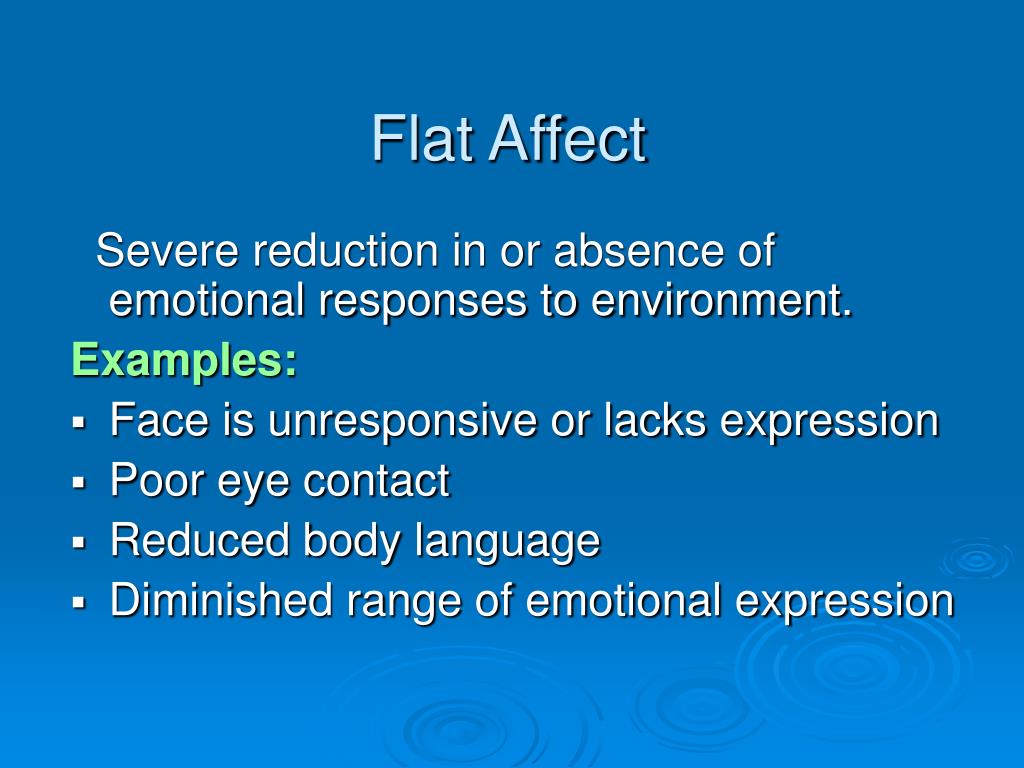

Reduced affect should be distinguished from apathy and anhedonia, which explicitly refer to a lack of emotional sensation. It may also be a side effect of certain medications (e.g., antipsychotics and antidepressants ). Reduced affect can be symptomatic of autism, schizophrenia, depression, posttraumatic stress disorder, depersonalization disorder, schizoid personality disorder or brain damage. Expressive gestures are rare and there is little animation in facial expression or vocal inflection. It manifests as a failure to express feelings either verbally or nonverbally, especially when talking about issues that would normally be expected to engage the emotions. Reduced affect display, sometimes referred to as emotional blunting or emotional numbing, is a condition of reduced emotional reactivity in an individual. Facial paralysis or muscle disorders: Muscle disorders or facial paralysis may prevent some people from displaying the emotions they feel.Condition of reduced emotional reactivity in an individual.Side effects of medications: Some medications like antidepressants and seizure drugs may impact affect.Two other common causes of flat affect are not the result of altered brain activity. The resulting condition causes a variety of symptoms, including depression, anxiety, emotional withdrawal, and flat affect. Posttraumatic stress disorder : This disorder is common in individuals who have experienced a significant event which was perceived as traumatic.These include depressed mood, loss of interest in things that typically produce pleasure, and flat affect. Brain damage: Injuries, such as a traumatic brain injury, can cause a variety of symptoms.This can lead to symptoms including flat affect. Depression : The chemical imbalances of depression may interfere with proper brain function.Some people with autism appear to have little emotional reaction to activities. Autism : Flat affect is common in people with an autism spectrum disorder.Some people with schizophrenia report they still experience a wide range of emotions, but they may not show those emotions in the form of facial expressions.

Schizophrenia : This disorder affects everything from how a person performs tasks and behaves, to how they feel and react.Most of the conditions that cause flat affect are related to the brain.


 0 kommentar(er)
0 kommentar(er)
